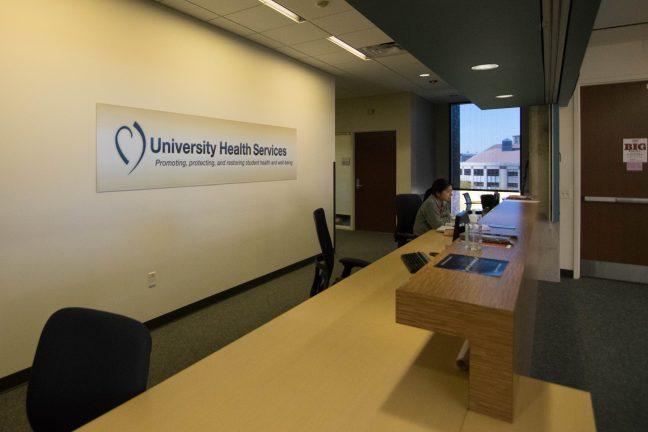Student Services Finance Committee unanimously voted against the University Health Services 2020 budget of $18.9 million Monday.
While this vote does not defund UHS, it brought up students’ concerns with how the services operate.
SSFC will bring forth their recommendations for UHS in a meeting with Chancellor Rebecca Blank in March.
SSFC’s main issue with the UHS budget was with the allocations toward mental health.
The proposed budget allotted for a 1 percent increase in funding toward mental health services. This was a 3 percent decrease compared to previous years and leaves little room for increasing services.
In a press release, the Associated Students of Madison listed many students’ concerns of students as well as some options UHS could explore based on recommendations given by ASM.
“Mental health is one of the most prevalent issues facing students at UW–Madison and at universities across the country,” the press release said. “It is the university’s responsibility to provide adequate health services, and the Associated Students of Madison’s mission to advocate on behalf of the students we represent.”
UHS cited a lack of physical space as a reason for not being able to expand, however, the press release said that UHS could “reasonably hire” seven additional providers in their current space. UHS’ budget only requests two providers.
At a previous SSFC meeting, UHS representative Arnie Jennerman said UHS is planning to launch a mental health task force that will include professors, UHS staff and students.
“Mental health visits increased by 30.38 percent,” Jennerman said in the previous meeting. “We know we haven’t solved that issue, but it continues to grow.”
Additionally, UHS currently has a lack of staff in mental healthcare, especially for LGBTQ+ students and students of color, Jennerman said.
At Monday’s meeting, University of Wisconsin student Tess Iding stressed the importance of adequate mental health treatment on campus.
“They’ve obtained a horrible reputation,” Iding said. “I personally have heard many stories solely within my freshman year that can be attributed to the limited amount of mental health resources on campus.”
The average wait time for an appointment at UHS is three to four weeks, with slots reserved for emergencies.
ASM chair Billy Welsh spoke about the lack of transparency during the budget formulation process.
“What is the most upsetting to me, is the lack of respect and honesty that was given to students in this process,” Welsh said. “If the real problem was the overall segregated fee rate and the rec sports increase, why weren’t we told this before the budget was introduced?”
Rep. Landon Tselepis emphasized that SSFC wants a working relationship with UHS to get students the best care possible.
“It’s about working with UHS, not against them, and I think all members on the committee are trying to take a solution-oriented approach to advocate on behalf of the student body and work in conjunction with the university so that we can get a reasonable plan that can address this year’s problem,” Tselepis said.
SSFC also held the budget proposal hearing for Rec Sports. Representatives from Rec Sports outlined the services that will be provided with the completion of the Nicholas Recreation Center.
The committee will vote on the Rec Sports budget on Monday, Feb. 18. Ahead that vote, the committee will tour Rec Sports facilities on Thursday.


